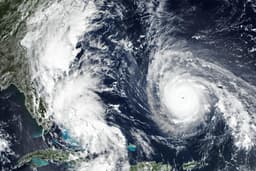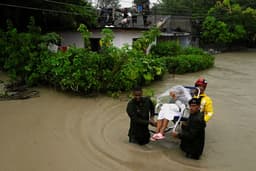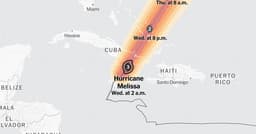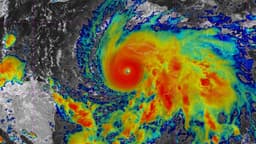Home / Weather / Climate Change Supercharges Hurricane Melissa, Wreaking Havoc in Caribbean
Climate Change Supercharges Hurricane Melissa, Wreaking Havoc in Caribbean
1 Nov, 2025
Summary
- Hurricane Melissa underwent extreme rapid intensification, strengthening by 112 km/h in 24 hours
- Climate change made Melissa 10% winder and 10% wetter than past hurricanes
- Warmer Caribbean waters, up to 2°C above average, fueled Melissa's rapid intensification

On November 1st, 2025, the Caribbean region was reeling from the devastating impacts of Hurricane Melissa, a powerful storm that had torn through the area just days earlier. Melissa had undergone a rapid and extreme intensification, strengthening by 112 km/h over a 24-hour period, making it a prime example of the growing threat posed by climate change.
According to climate scientists, the warming of the world's oceans due to human-caused climate change has been a major factor in the increasing frequency and intensity of hurricanes like Melissa. Their analyses found that hurricanes similar to Melissa are now around 10% wetter and 10% windier than they would have been in the past, thanks to the extra heat and moisture available.




